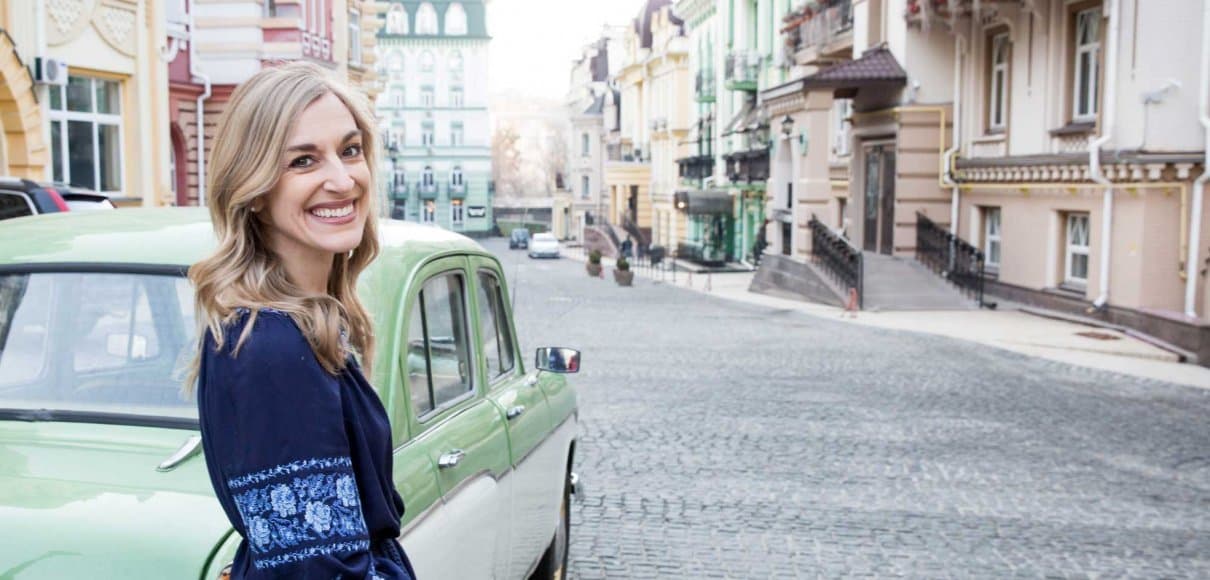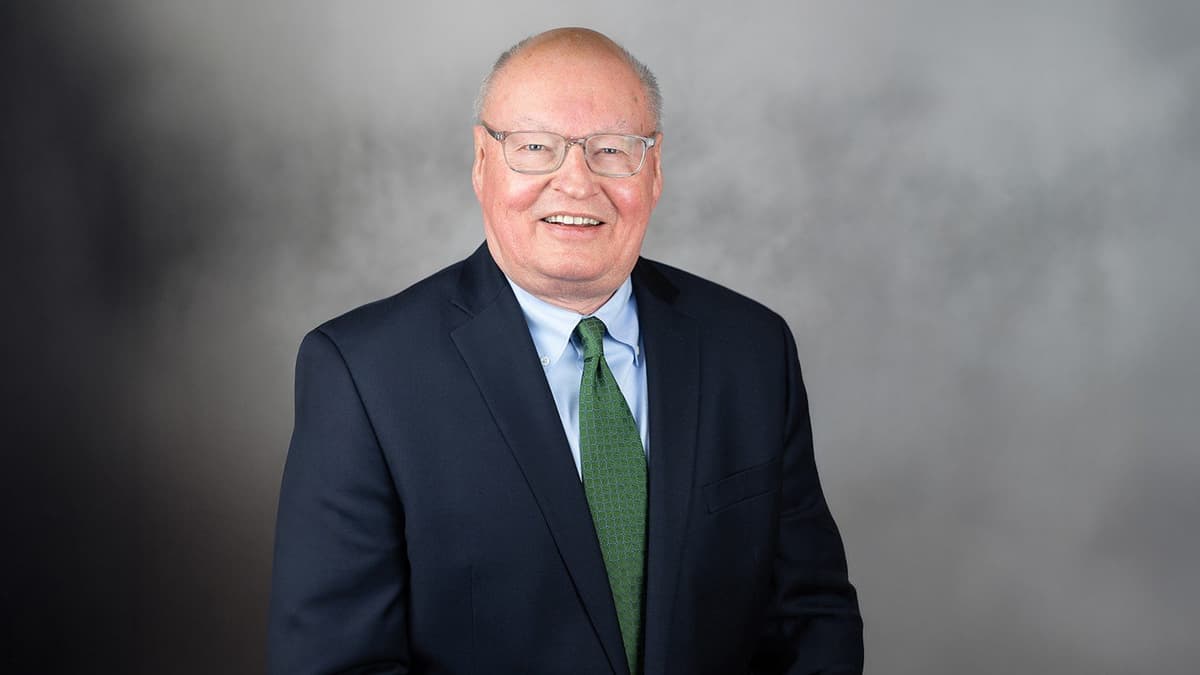The ink on her college diploma was barely dry when Karen Springs ’04 packed her bags for Ukraine in October 2004. She didn’t have specific employment plans, but she did have a place to stay for eight months with a relative who worked for the Christian Broadcasting Network in Ukraine.
Initially, Springs cared for her relative’s children and participated in humanitarian aid distributions through Operation Blessing, a ministry of the Christian Broadcasting Network. Operation Blessing provides things such as food, clean water, and medical care in countries around the world. Then, two months into her stay, Springs visited an orphanage to distribute aid and met Irina, a 12 year old who took Springs by the hand and led her into the orphanage when she arrived.
For three days, Springs spent most of her time with Irina and her friends on the playground or in the hallways of the orphanage, laughing and joking in her limited Russian, which most Ukrainians spoke at the time.
“God used those three days at that orphanage to give me a heart for orphans and specifically for the plight of older children about to age out of the system,” Springs said.
In 2004, approximately 100,000 kids lived in orphanages in Ukraine. Some were officially orphans, while others lived there to escape unsafe or unhealthy family situations. Kids who were not reunited with their families or adopted by the time they turned 16 or 18 were aged out of the system. If they were fortunate enough to attend a trade school or enroll in a college, they continue to receive a stipend until age 23, but many kids fall through the cracks and fail to attend school after they leave an orphanage. These vulnerable kids are the ones who most often fall prey to crime, prostitution, and sex trafficking.
When Springs thought about her own life, she recognized how much she needed her mom during her teenage years, and she ached for the older orphans struggling to survive without parents.
“I was struck by their lonely reality — no papa to tuck them in at night. No mama to wake them up in the morning. I knew these older kids were likely to be overlooked. Who would tell their stories? Who would see to it that they didn’t become just another statistic?” Springs said. She left the orphanage determined to help the older kids in the system.
Kim Gilnett, Springs’ work-study supervisor when she was a student at SPU, describes Spring as a deep thinker. “She has a great heart and a great sense for ministry,” said Gilnett, who recently retired from his role as senior admissions counselor at SPU. “She has a strong moral compass. That’s why ministry is so important to her.”
Over the next few months, Springs grew more involved in the work of Operation Blessing, promoting adoptions and assisting kids who were aging out of the system. But time was ticking. Her return ticket to Seattle, Washington, was already booked. Did she want to go home for good or should she plan to return to Ukraine?
Springs thought of the story of Esther in the Bible, where her relative Mordecai told her that if she remained silent over the plight of her people, God would provide relief and deliverance to the Jews another way. “But perhaps,” Mordecai suggested to Esther, “you are here for such a time as this.”
The orphanage work would happen with or without her, Springs thought, but she wanted to return to Ukraine and be a part of it.
She flew home to Seattle and studied Russian through an intensive, summer-long course at the University of Washington before she returned to Ukraine and continued volunteering with Operation Blessing and later Orphan’s Promise, another one of CBN’s family of ministries.
“Language was one of the biggest adjustments,” Springs said. “I chose to learn Russian because, at the time, where I worked and lived, everyone spoke both, and I often traveled throughout the former Soviet Union where Russian is more widely spoken.”
Despite the language barrier, her love for the new culture and her passion for orphans helped her thrive. In 2008, Springs was hired by CBN’s Orphan’s Promise as a project manager for the Gift of Adoption project. She promoted adoption, shared the needs of orphaned kids, and worked with a team to create a curriculum for kids aging out of orphan care. That curriculum was eventually translated into multiple languages and used around the world.
A few years into her work at Orphan’s Promise, Springs helped launch a group called the Alliance for Ukraine Without Orphans. The group united churches and nongovernmental organizations to promote adoption and highlighted church leaders and pastors who encouraged adoption in their churches.
“In the years I was in [Ukraine], I saw a dramatic shift, specifically in the church, with more Christians being open to foster care and adoption and recognizing God’s heart for orphans,” Springs said.
In 2011, she began hosting families in her Kyiv apartment who were going through the adoption process. These required, in-country visits often took five to seven weeks.
“People would typically stay with me on the first week or the last week of their journey,” Springs said. “Families sometimes had to travel to a different part of the country depending on where the child was located, but they would always start and end the process in Kyiv.”
Most families came from the United States, but she also hosted Canadian and European families. To help with lodging expenses, she offered her apartment as a free and friendly English-speaking place to stay. Over eight years, Springs hosted nearly 150 families at her apartment.
She was inspired by the families who adopted children with medical challenges such as Down’s syndrome, cerebral palsy, or HIV. One young couple in their mid-20s traveled to Ukraine with a 2 year old and adopted a baby with Down’s syndrome.
Prior to the adoption, the couple had made a list of the pros and cons of the adoption. All the cons were completely selfish reasons, and all the pros were Jesus reasons, they told Springs. It just made sense to them to proceed with the adoption.
By hosting so many families, Springs was privy to the struggles people faced when they returned home with their adoptive children.
“I always knew adoption was hard,” Springs said. “It is easy to tell the Cinderella story of adoption, but the harder stories are not always told. I wanted to be a truth-teller about adoption so that people understood the full spectrum.”
In fall 2017, Springs took a three-month work sabbatical to begin research for a book about the realities of international adoptions. Springs traveled to 38 states to interview 60 families who stayed with her in Kyiv.
In the interviews, families shared their struggles. “They were raw, vulnerable, and real with the hard parts of their stories,” Springs said. They talked about how their biological children struggled to accept their adopted siblings, especially when the birth order was disrupted. Springs heard about adopted kids rejecting their families, marriages struggling or ending under the strain of adoptions, teens becoming pregnant and running away, and kids being re-adopted into other families.
“People think because they traveled long distances to adopt a child and endured challenges and hardships, their child will express gratitude for their sacrifices,” Springs said. “All adoptions, whether domestic or international have their challenging aspects.”

In 2019, Springs left Ukraine and her job at Orphan’s Promise to return to the United States to complete her book, Adoption Through the Rearview Mirror, which was published in 2020. Then a connection told her about a teaching job at Cedar Park Christian Schools in Bothell, Washington. Springs, who majored in theatre and communications at SPU, was excited to find out the position taught Bible and drama to middle school students.
When Russia invaded Ukraine in February 2022, Springs was shocked and heartbroken for Ukraine.
“There had been rumblings of this possibility in the weeks and months prior, but I, like many of my Ukrainian friends, was in denial. I really didn’t think it would happen, nor at the scale that it happened.
Adoptions are closed indefinitely in Ukraine because of the war. Some centers managed to evacuate orphans from Ukraine and move them to Germany, Italy, and Poland. But many orphaned children remain in the country, vulnerable to the traumas of war.
Springs has continued to volunteer with both Operation Blessing and Orphan’s Promise, recently making two trips overseas to serve Ukraine’s refugee families in Poland. Both organizations distribute aid along the border, help to resettle families, and organize summer camps for kids to help lessen their trauma.
“It is unreal how much financial need there is right now. So many people are out of work and starting over,” Springs said. “Remember to pray for protection and for the war to end.”
You can find out how to help these organizations working in Ukraine at Operation Blessing and Orphan’s Promise.




